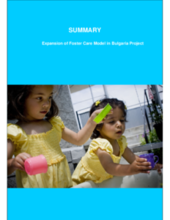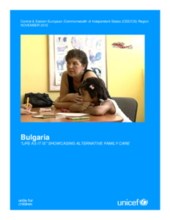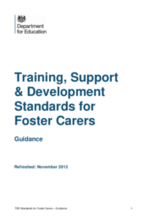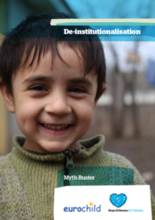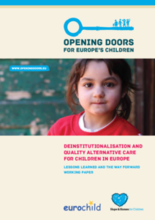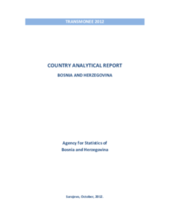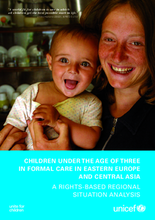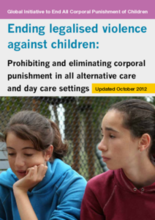Displaying 1981 - 1990 of 2223
This summary report describes the project UNICEF has undertaken with the government of Bulgaria to establish a nationwide regional approach to foster care development based on its pilot experience. The project included a national public awareness campaign, establishment of specialized foster care services, and capacity building of the statutory child protection bodies.
This report gives an overview of the documentary reality TV series, “Life as it is-foster families,” which UNICEF in Bulgaria launched in 2010 as a part of its agenda to stop children under 3 years of age from being placed in institutions and to close the infant homes for institutional care.
The Training, Support and Development (TSD) standards form part of a foster carer's induction into the role. They provide a national minimum benchmark that sets out what foster carers should know, understand and be able to do within the first 12-18 months after being approved.
In this TED video, Georgette Mulheir, CEO of Lumos, an NGO dedicated to ending worldwide systematic institutionalization, describes how orphanages can cause irreparable damage to children both mentally and physically and urges to end reliance on them by finding alternate ways of supporting children in need.
In this TED Talk, poet and playwright Lemn Sissay tells his story of growing up in foster care in the UK.
This briefing paper seeks to address key misunderstandings about de-institutionalisation. It explains what it is and what it is not and addresses key questions often asked about the need for such institutions, the role they play and the impact of this transformation and what it entails.
This paper aims to raise awareness on the perverse effects of institutionalisation on children and it calls for comprehensive system reforms, starting with a transition towards family and community-based care. It highlights country level lessons learnt in the European context that demonstrate how deinstitutionalisation can be achieved in practice.
Through a comprehensive statistical analysis and literature review, this UNICEF report provides a child rights-based up-to-date review of the situation of children under the age of three in formal care in the countries of Central and Eastern Europe and the Commonwealth of Independent States (CEECIS).
The report provides guidance on achieving law reform which gives children in alternative care and day care the protection from all forms of corporal and other cruel and degrading punishment that is their absolute right.

